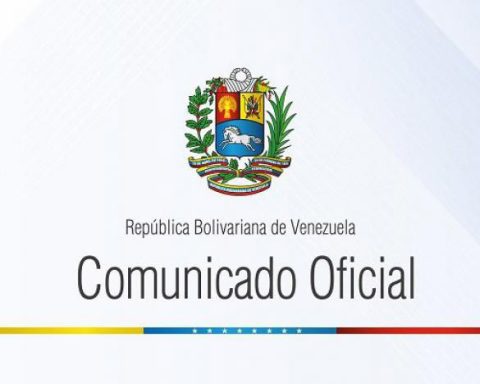In its first three days of operation of the Harmonization Commission, whose mission is to make recommendations to the Plenary based on the detection of omissions, inconsistencies, contradictions, repetitions or misspellings in the constitutional draft, in order to prepare a coherent text . the members of this commission voted on the correction proposals made to the text by the expert in philology, Claudia Poblete, doctor at the Autonomous University of Barcelona, they defined the lawyers who will present before the commission as Javier Couso, Tomás Jordán and Marisol Peña. They also agreed on the names that the chapters of the new Constitution will have.
Although many of the eyes are on the Transitory Norms Commission, in Harmonization elementary discussions will be fought for the design of the Legislative System. Fernando Atria, conventional of the Broad Front (FA) recognizes two: the quorum so that the legislator can make constitutional reforms and a rule that resolves discrepancies between the legislative bodies.
The second is about the power of the Congress of Deputies to insist —with 4/7— on its original bill, before the result of a mixed commission with amendments from the Chamber of Regions.
These two elements were left out of the constitutional draft when they were rejected by the Plenary, which is why Atria considers that the absence of both generates inconsistency in the draft, which is why it insists on the possibility of reviving them in the Harmonization Commission, despite the fact that It has the refusal of even the board of directors for it.
-Do you agree that the constitutional reform mechanism has been left with a simple majority quorum, which is the same as a law?
-It is incoherent because in other cases, in the case of laws, a qualified majority is required, that is, not of those present, but of the members. That some laws are more difficult to modify than the Constitution seems incoherent to me. I would hope that could be corrected in Harmonization. Raising the approval quorum of these constitutional norms to at least a qualified majority, which is the majority of the members, or to 4/7, which was the original proposal.
-What were the laws that required a qualified majority from the Congress of Deputies and the Chamber of Regions within the constitutional draft?
–Laws that refer to political parties, electoral system, Central Bank, autonomous bodies, etc. Laws that refer to the legal infrastructure of the democratic state. They are of qualified majority, majority of the members in exercise, not against majority.
-The government proposed that the quorum rules apply immediately when the new Constitution enters into force. What position do you have regarding the current Congress being able to make changes to the Constitution?
-Evidently there will be a period in which the new Constitution and the old institutions —the current Congress— will be in force. In that period, in my opinion, quorums should be valid in general, for legal reform, but the Constitutional Reform should be subject to a vacancy, that is, it could not be done, or it should be subject to more difficult conditions. That is a discussion for the Transitory Norms Commission. If the Convention proposes a text and it is approved by the people, I believe that the possibility that it can later be easily modified by Congress is not reasonable.
-During the different negotiations that allowed the development of the proposed Legislative System, the metaphor was used that it was a set of gears, that is, that the articles depended on each other. How is this plan without the paragraph that allowed the Congress of Deputies to insist on its original project?
-The legislative system is not a set of provisions which can be negotiated and agreed upon, each on its own terms, and then glued together. It is a system that has a logic. And a crucial part of the entire discussion was that the Congress of Deputies, made up of a criterion of proportional representativeness, with some corrections —parity and seats reserved for native peoples—, had a preeminent position in front of the Chamber of Regions. The crucial rule there was the possibility of insistence. I don’t think there is a formally contradictory system left, obviously not, but there is a system that is incoherent in that sense.
– Is the legislative system that remained in the Constitution an asymmetrical bicameral system? Given that the Chamber of the Regions is a reviewer in 19 issues and that every project must start and end in the Congress of Deputies.
-Well, there you have an example of the inconsistency I’m talking about. Because if there is no possibility of insistence, it cannot be said that everything ends in the Congress of Deputies. And that’s a point that all of us in this conversation agreed on.
-What is the logic behind the Chamber of Regions having less power?
-One of the fundamental aspects of the democratic principle is that political power is distributed equally among citizens. This is manifested in the rule one person one vote. A body like the Congress of Deputies cannot respond mathematically to this principle —because of corrections such as parity and seats reserved for native peoples—, but it has to get as close as possible. The problem with that, given the demographic distribution of Chile, is that attending only to that would imply a concentration of representation in Santiago.
This demographic finding should not lead one to deny the democratic principle, but rather to seek a way to compensate for the political effect of the distribution of the population. That is what the Chamber of the Regions is for. So that in the legislative discussion there is a regional perspective with an important participation.
Without elements such as insistence, a region where one hundred or two hundred thousand people live would have the same power as a region where seven million people live.
-Why in that design would the power of insistence of the Congress of Deputies and Deputies be important in its original project?
-What the power of insistence of the Congress of Deputies would lead to is the creation of a relationship between the Chamber of Regions and Congress, in which the voice of the regions that is expressed in the Chamber has an impact, but the The final decision rests with Congress, where the political will of the Chilean people is formed in accordance with the democratic principle.
-With what is approved, what happens if the Congress of Deputies and Deputies rejects the amendments that the Chamber of the Regions can make to the results of a mixed commission between both bodies?
– Strictly speaking, that is not solved by the Constitution. Which shows that there is a problem, an inconsistency, a gap.
-Can the absence of the insistence of the Congress in its original project be fixed through one of the final commissions?
-The Harmonization Commission aims to correct inconsistencies, gaps, I think it is an opportunity to do so.
– Is it a risk for the CC that a group that has already spoken goes to the Supreme Court if the insistence paragraph continues to be lifted, because this practice, according to them, does not follow the Regulation?
-I don’t see it as a risk for the process. If they consider that there are reasons to go to the Supreme Court and they meet the conditions established by the Constitution for it, it is their right.
-Do you not think that the communicational damage that the idea of taking the idea of the insistence of the Congress could produce again to the Plenary can delegitimize the process and reinforce the rejection?
I do not see why. This is part of the regulatory conditions of the Harmonization Commission. There will be some, as there always are, who will say that this cannot be done, who will say that this threatens the process. Freedom is free, everyone has the right to his opinion.
-The Regulation dictates that the Harmonization Commission detects omissions, inconsistencies, contradictions, repetitions and misspellings, can you include a paragraph?
-The discussion on the powers of Harmonization ignores the fact that this commission itself cannot change anything, it only proposes changes to the Plenary. This is pronounced by 2/3 of the votes, that is, with the same quorum that was pronounced when it approved the norms. I suppose there are some who will say that there is no inconsistency, so there may be disagreement. But this disagreement is resolved first in the commission, which by 2/3 has to propose harmonization indications and then it is resolved in plenary.
-Now that there is a draft, and with a view to July 5 when the final Constitution is delivered, do you see the possibility of changing the results of the polls in which for now the rejection option concentrates more adherence?
-I think it is possible to the extent that the discussion is more about the proposed Constitution and less about the saumerios or other things that happen in the Convention. We still cannot see the Magna Carta, what we have now is a consolidated set of approved norms, which is not a constitutional text. When you read it, it has no logic or order. But something recognizable as a constitutional text should come out of this harmonization process, with a clear, easy-to-understand structure, with redundant articles consolidated. When that is the object of the discussion, it will begin to be evident that the constituent process, with all the problems it had, was successful.


















